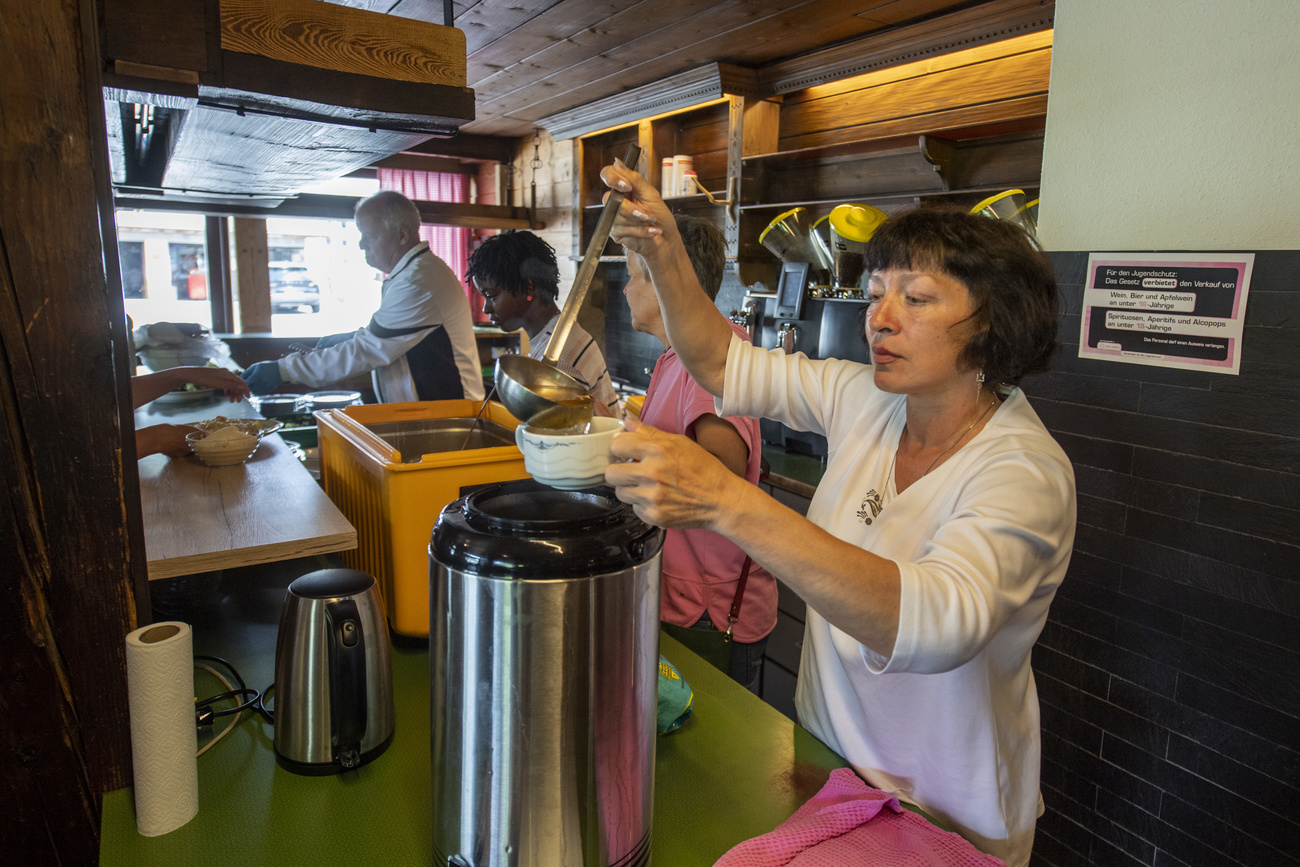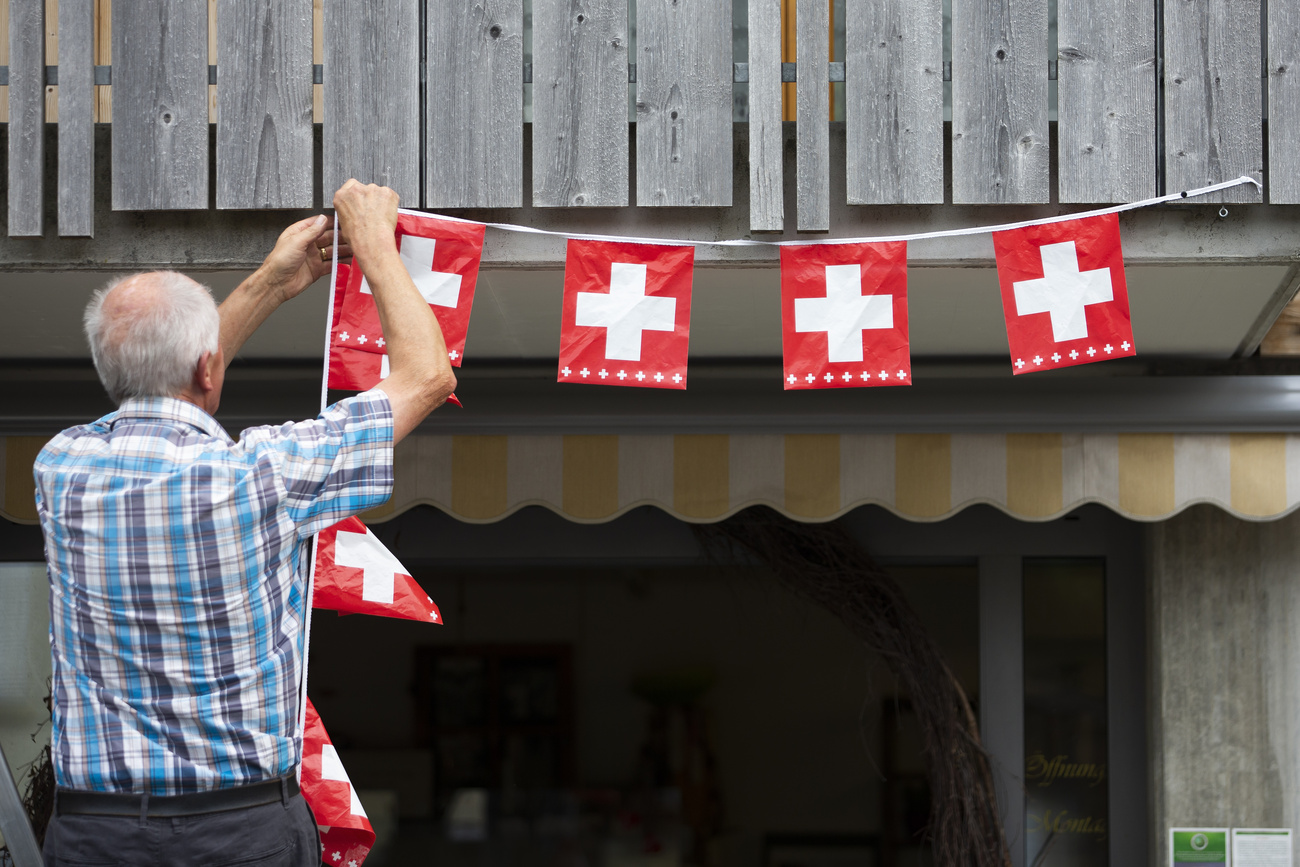
Swiss report praises special refugee status for Ukrainians

Over 80,000 Ukrainians have been granted “S” protection refugee status in Switzerland and 17% of working-age Ukrainians are now employed. Overall, the system has worked well, but there is room for improvement, said a group of experts on Thursday.
Since the Federal Council (executive body) activated the “S protection” refugee status for people fleeing Ukraine on March 12, 2022, Switzerland has been able to quickly process tens of thousands of asylum seeker requests and the measure has worked well, says a report filed by a group of experts chaired by Urs Hofman, a former member of the House of Representatives.
Ukrainian refugees integrated in Switzerland
The State Secretariat for Migration (SEM) said 80,600 people had received the “S protection” status so far and 12,000 of them have since left Switzerland. Among those still living in the Alpine country, around half are of working age (18-64), and 17% of them are employed, said a reportExternal link by Swiss public radio, SRF, on Thursday.
+ Ukrainian refugees want more work in Switzerland
The main fields of employment of Ukrainian refugees are the hospitality industry, IT and consulting, and education. According to the latest figures, the average monthly wage is CHF4,700 ($5,215) and no instances of wage dumping were reported. However, there are important employment rate differences between cantons.
The Swiss government developed “S protection” status in the mid-1990s in response to the Balkan wars. The mechanism enables the rapid admission of a group of refugees, who are thus freed from long asylum procedures. In March 2022, the cabinet granted this “S” status to Ukrainian refugees following the lead of the European Union, which activated its Temporary Protection Directive.
Room for improvement
Despite the overall positive evaluation, the experts concluded that the system should be improved to integrate the “S protection” status into the emergency planning and provide refugees with private accommodation. “Accommodation in private homes has proved to be an indispensable element in controlling a mass exodus,” says the report.
+ Caritas wants to improve protection status S for refugees
Finally, the experts have also warned about the fact that the EU and Switzerland still have different regulations in terms of the length of asylum protection: from 2025, when the current EU directive expires, this could become a problem. Coordination regarding the application and withdrawal of the protection status should be agreed upon, conclude the experts.

In compliance with the JTI standards
More: SWI swissinfo.ch certified by the Journalism Trust Initiative
















![The four-metre-long painting "Sonntag der Bergbauern" [Sunday of the Mountain Farmers, 1923-24/26] had to be removed by a crane from the German Chancellery in Berlin for the exhibition in Bern.](https://www.swissinfo.ch/content/wp-content/uploads/sites/13/2025/12/01_Pressebild_KirchnerxKirchner.jpg?ver=a45b19f3)











You can find an overview of ongoing debates with our journalists here . Please join us!
If you want to start a conversation about a topic raised in this article or want to report factual errors, email us at english@swissinfo.ch.